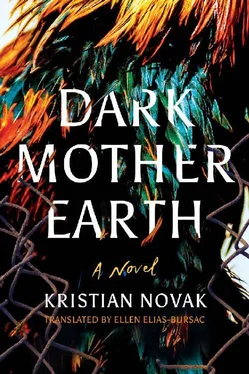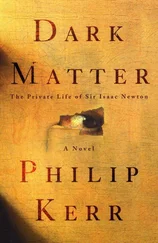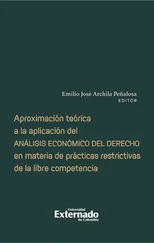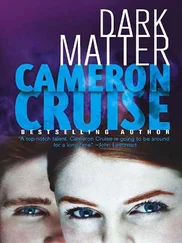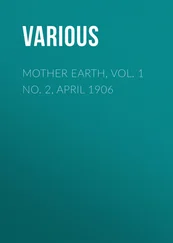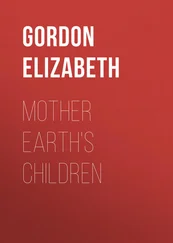“I ain’t tuckered, Mladen, I can go again.”
“Naw, go indoors for a while—there are wafer cookies on the table—and tell Milica to mix you up some orange drink.”
I went in and got some wafer cookies from the table, then sat out on the terrace. I’d never seen Franz so focused. Mladen told him that being a goalie wasn’t just about standing in the goal, he’d have to follow the whole game, and run out to intercept the ball from the other team’s players. He showed him how to throw himself under their feet, and he and Franz tumbled around. I scarfed down cookie after cookie. If they’d invited me, I’d have liked to try that tumble, too. Getting ready to go back, Mladen opened the trunk again. I told him that riding in the trunk had made me sick to my stomach, but he insisted. He explained that next time Franz would come by himself, because they had to practice their goalie exercises, and I could come another time.
I saw things clearly then. I’d have to be as good as Franz if Mladen was going to train me. I also wasn’t consoled by the thought that he was maybe feeling sorry for Franz because of his tongue and the fact that his old man was a drunk, and because everybody in the village was mean to him. No one was particularly nice to me, either, but who cared about that. I needed my anger box, I could already hear the red velvet pillow crinkling.
“I’m home,” I called and raced straight up to the attic. It was already getting dark. The box wasn’t there. I flew into a panic.
“Where’s the box?” I hollered. We’d been living for two years in a hush, and suddenly my words resounded throughout the house. My mom and sister came to the door of the kitchen, my sister holding a half-eaten slice of bread with butter—a bite was still in her mouth. I repeated as calmly as I could: “Where’s the box?”
“What box? What’s going on?” said Mom. They didn’t realize the danger they were in.
“The box, the wood box with a red cushion inside. Where is it?”
“I just put my makeup in it, that’s all,” said my sister. The alarm from two years ago was back in her eyes.
“That’s my box!” I shrieked and flew by them into the bathroom.
It was on the shelf over the sink. In one flip I emptied it. Eyeliner pencils, cotton swabs, makeup, and nail scissors drummed on the bathroom floor tiles; the eye shadow completely fell apart. There was no pillow inside.
“I threw the pillow out,” I heard a voice say, unsure, from the hallway.
I ran out of the house and only partly heard Mom say to pull myself together or else.
I flung myself down onto my belly in the grass, and began yelling into the dirt, but too much of it escaped out the sides. They stared at me dumbly from the front stoop, I couldn’t make them go away. I clenched my fists and ground my teeth and sank slowly into despair. The fury inside me hadn’t waned, and the fear that they were going to die because of me ballooned. I stood up and punched our cherry tree with my bare hands. After the first two hits, gashes opened on my knuckles, so I kicked it. I don’t know how much time passed before I dropped to the ground, exhausted.
“What’s wrong, Matija?” asked Mom, softly. “Why are you hitting the tree?”
“I’m scared I’ll do something to you,” I said, and my sister turned around silently and went back into the house.
There was no wake because they’d taken Trezika and Mladen to Čakovec for autopsies. Stankec and another officer stayed in the village until evening. The Krajčićes offered them homemade sausages and poppy-seed cake.
Events unfolding beyond the village had begun to accelerate and intensify, but very little news of what was going on in Eastern Slavonia and the rest of Yugoslavia made it to our village. Only the occasional snippet about shootings and barricades found its way into our small enclave of horror. There was no need to import fear—we had plenty of it to go around, and we submitted to it. We didn’t know what to think about the people who had taken their own lives. It was mysterious because they were close to us, but they’d seen something we couldn’t see. Now we were all watching each other, weighing every word, seeking the seeds of death. And we could sense other people watching us, which produced a false brightness and zest for life. We concealed, each in our own way, our suspicions and fears. When one person took their life, the disease was theirs alone. When four people took their lives, the whole village was afflicted. It looked as if the suicides would continue, though nobody could be certain there’d be more. I least of all.
I knew people were sad after Mario died, but after Zdravko, there was an awkward sense of relief that all this was somebody else’s problem. After Trezika and Mladen, it became clear that “somebody else” was a slippery concept that could, in fact, apply to any of us. The only ones who expressed their worry, though, were the older women; they were primed to lament all the droughts, wars, poverty, and illnesses. They started saying somebody had cursed the village. Might somebody, perhaps, be walking around at night from house to house, talking folks into killing themselves? The younger ones laughed at this, pretending scorn. I heard someone say that Mladen Krajčić had taken himself hostage, but nobody would pay the ransom. I heard someone else say that the parish priest would go bankrupt soon if people kept dying like this, because he wasn’t paid if there were no funeral rites. They laughed sourly, and feigned goodwill covered the village like a blanket full of moth holes. Each unusual gesture only widened these spaces. One day, out of the blue, Rega Popičova bought twenty Animal Kingdom chocolate bars and handed them out to kids on their way home from school. Mom and I watched her from the window of the grocery store with the salesladies.
“What’s this now?”
“She’s giving out chocolates.”
“Is she in her right mind? Sure, her son works up Germany-way, but I don’t reckon they’re rich. And those guest workers are tight with money after their years of working abroad.”
“I should ask her if she’s doing okay. It’s not right for a person to go around doling out chocolates to other folks’ kids.”
“Don’t you be doing that in front of the children.”
There was talk that Miška Janek, a fifty-five-year-old man who’d recently lost his job at the Mercator superstore in Slovenia, had been behaving oddly. Zvonko “Democracy” Horvat was the first to notice.
“Something snapped in Miška when he saw people being buried with no funeral rites. He keeps saying that’s how animals are buried, not people. Margeta says he ain’t sleeping nights, he goes out and paces the yard. And then one morning there he is at Mass. And I wouldn’t say he’s particularly God-fearing—only ever used to be at Mass for Christmas and Easter.”
Every day—morning and night—he went to Mass. He prayed loudly, unevenly, coming in late and then speeding up for the next phrase. He wasn’t of a mind to blend in with the monotonous, unified praying of everybody else, he wanted to show both himself and them that he felt each word deeply. He thought God would hear his prayers and spare him. He was more and more fearful that he, too, would… succumb. Though he led a full life with his wife, Margeta, and his little girls, he became painfully aware of every second of loneliness and every possible instrument of death. His time on the toilet had become a prayer because he was terrified that madness might overcome him while he was sitting there and, before the rational part of him had the chance to call for help, he might stab himself in the neck with scissors. When afflicted by the ailment he so fiercely feared, though, people didn’t call for help, but sank to their death in silence. On the Sunday after they buried Trezika and Mladen, Miška tried to convince everybody after Mass that the whole village should move to the parish hall so we could all tell the priest what we needed to. The whole village could sleep together, cook together like in the old days, maybe even go to the bathroom and shower together—then nobody’d be left alone, and nobody could kill themselves. It was pitiful to see a grown man so fearful that even his friends laughed at him, though it was clear they were mocking him so they could free themselves of doubt. Although he tried to hide his anxiety and speak calmly, he couldn’t pull it off. His despair leached out of him, and he was convinced that only he grasped the vastness of the peril facing us all.
Читать дальше
